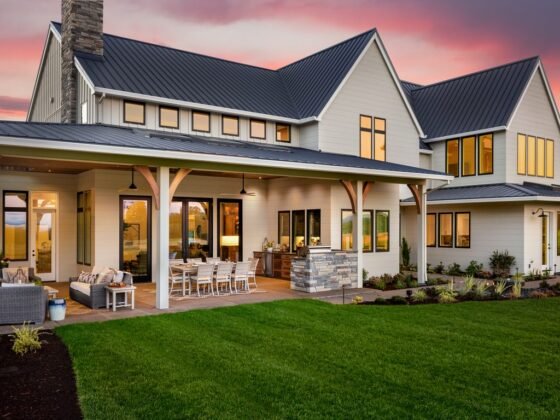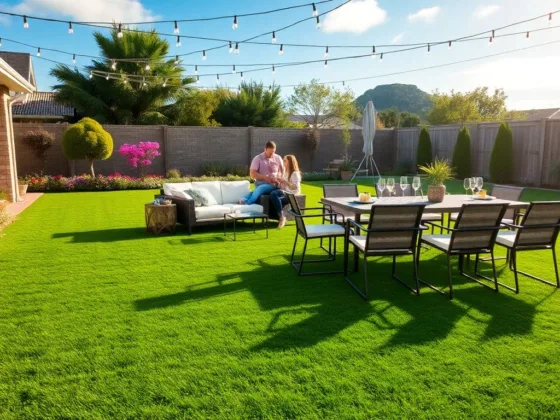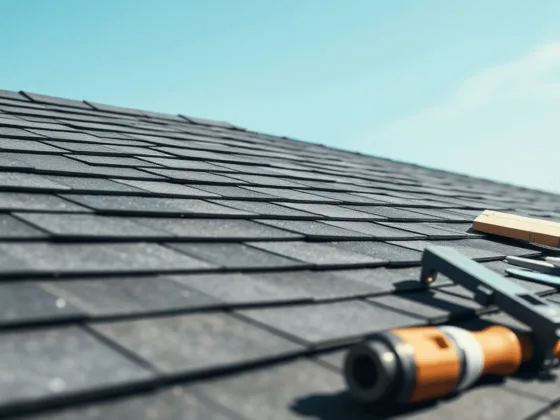Table of Contents Show
For outdoor enthusiasts, buying a property isn’t just about the home itself, but also about the lifestyle it supports. Whether it’s a love for hiking, fishing, mountain biking, or simply basking in the tranquility of nature, finding the right property is essential.
However, this pursuit extends beyond just picking a scenic location. It involves considering a range of factors that impact your ability to enjoy the great outdoors.
This guide is designed to help outdoor enthusiasts navigate the process of buying a property that not only serves as a home but also as a way to indulge in their outdoor passions.
1. Identifying Your Outdoor Preferences
Before starting your property search, it’s essential to identify what outdoor activities are most important to you. Are you a keen hiker looking for challenging trails, or do you prefer tranquil fishing spots? Maybe you’re a wildlife enthusiast eager for regular sightings.
Your specific interests will significantly influence the location and type of property you should be considering. By defining your outdoor preferences upfront, you can focus your search on areas that cater to these activities, ensuring your new home aligns with your lifestyle.
2. Exploring Properties in Ideal Outdoor Locations
Exploring properties in locations primed for outdoor activities can be thrilling. For instance, the Smoky Mountains area in Tennessee is a paradise for hikers, bird watchers, and nature lovers. When considering such properties, research the specific area’s outdoor offerings.
Are there well-maintained trails, public access points for fishing, or local outdoor groups? This step is about ensuring the locale aligns with your preferred activities and lifestyle aspirations. Look up the keyword homes for sale in Tennessee Smoky Mountains to find out more about the real estate market there.
3. Considering Access to Amenities
While seclusion might be appealing, it’s important to consider access to basic amenities. How far is the nearest grocery store, hospital, or school? Is there a nearby community where you can socialize and engage in activities?
Proximity to amenities should balance your desire for outdoor immersion with practical living needs. A property too remote might pose challenges in terms of travel time and access to essential services.
Read Also:
4. Evaluating Property Size and Terrain
The size and terrain of the property are crucial factors. A larger property might offer more space for outdoor activities but could also come with more maintenance.
Consider the terrain as well; a mountainous property might provide stunning views but could be challenging for daily activities or future developments. Think about how the land’s characteristics align with your hobbies and lifestyle needs.
5. Checking for Legal Restrictions
Before falling in love with a property, it’s essential to check for any legal restrictions. These might include limitations on certain types of construction, restrictions on vehicle use, or specific rules about land use that could affect your outdoor activities.
Investigating these factors early in the process can save you from future disappointments and ensure your outdoor activities can be enjoyed without legal hindrances.
6. Understanding Local Climate and Weather Patterns
Climate and weather play a significant role in outdoor activities, and therefore, in choosing a property. If you’re an avid skier, a location with long winters and plenty of snowfall is ideal. Conversely, if you enjoy year-round hiking or gardening, a milder climate might be preferable.
Research the local weather patterns, including seasonal changes, average temperatures, and precipitation levels. Understanding the climate will help ensure that your new home supports your outdoor activities throughout the year.
7. Assessing Property Infrastructure
Infrastructure is another vital consideration. This includes not just the home itself but also access roads, utilities, and internet connectivity. For instance, a remote cabin might offer stunning views and privacy, but if it’s inaccessible during winter or lacks basic utilities, it might not be practical.
Consider the state of roads leading to the property, especially if you’ll be commuting regularly. Reliable internet is also important for both communication and emergency services, especially in more secluded areas.
8. Budget Considerations and Financing
Financial planning is key when purchasing property, particularly if you’re looking in popular outdoor regions which can be more expensive. Set a realistic budget that includes the purchase price as well as ongoing maintenance, property taxes, and any necessary upgrades.
Explore financing options, and if possible, get pre-approved for a mortgage to make the buying process smoother. Remember to factor in the costs of your outdoor activities, such as equipment storage or specialized landscaping.
9. Importance of a Good Real Estate Agent
A knowledgeable real estate agent can be invaluable, especially when looking for property in areas with specific outdoor attractions. Look for agents who are familiar with the local outdoor scene and understand your specific needs.
They can provide insights into different neighborhoods, help navigate legal and financial aspects, and identify properties that match your criteria. Their expertise can save you time and help you find the perfect property more efficiently.
10. Long-Term Value and Investment Potential
When buying property, especially in areas known for their outdoor amenities, consider the long-term investment potential. Properties in sought-after outdoor locations often retain their value and can even appreciate over time.
Research the local real estate market trends and future development plans in the area, as these can impact property values. Consider the potential for renting out the property, especially if it’s in a popular tourist destination, as this can provide an additional income stream.
11. Planning for Future Development
Think about any future developments or improvements you might want to make to the property. This could include adding outdoor living spaces, building storage for outdoor equipment, or making eco-friendly upgrades.
Ensure that the property allows for such developments and consider the costs and planning involved. Future-proofing your property in this way can enhance your enjoyment and its long-term value.
Making an Informed Decision
Purchasing property as an outdoor enthusiast involves balancing your passion for the outdoors with practical considerations. From assessing local climates and infrastructure to considering long-term investment potential, each factor plays an important role in your decision.
By thoroughly evaluating these aspects, you can make an informed choice, ensuring your new home not only meets your outdoor lifestyle needs but also stands as a wise investment for the future.










